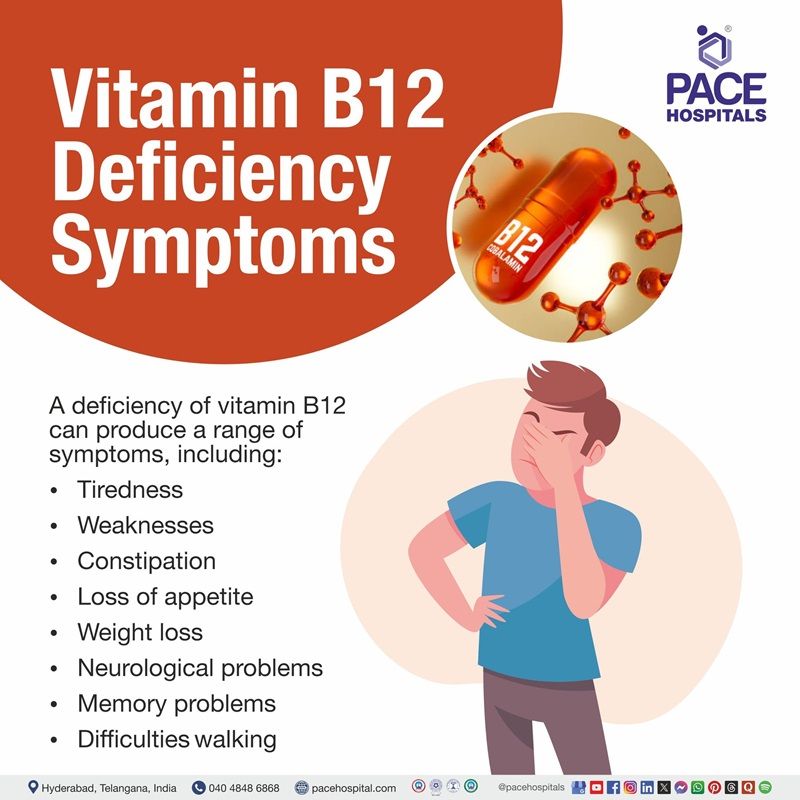Vitamin B12, also known as cobalamin, is one of the most essential water-soluble vitamins
Vitamin B12, also known as cobalamin, is one of the most essential water-soluble vitamins required for the optimal functioning of the human body. It is essential for supporting nerve health, creating DNA, generating red blood cells, and fueling the body’s energy processes.. Despite its importance, Vitamin B12 deficiency is alarmingly common in many parts of the world, especially among vegetarians, older adults, and people with digestive issues.
What is Vitamin B12 and Why is it Important?
Vitamin B12 is a complex B-vitamin that assists in numerous bodily functions. It is indispensable for:
- Maintaining healthy nerve cells
- Supporting brain function
- Creating DNA and RNA
- Preventing megaloblastic anemia
- Aiding in red blood cell production
- Boosting mood and energy levels
Unlike many other nutrients, Vitamin B12 is neither produced by plants nor animals. Rather, it is synthesized by microorganisms and, as a result, is found primarily in animal-derived foods.”
Key Functions of Vitamin B12 in the Human Body
1. Nervous System Health
Vitamin B12 is vital for forming myelin, the protective fatty layer that surrounds and insulates nerve fibers. Without sufficient B12, nerves can become damaged, leading to numbness, tingling, poor coordination, and even permanent nerve damage.
2. Red Blood Cell Formation and Anemia Prevention
A deficiency in Vitamin B12 interferes with normal red blood cell development, leading to larger and irregularly shaped red blood cells—a condition known as megaloblastic anemia. This condition reduces the oxygen-carrying capacity of the blood, resulting in fatigue and weakness.
3. DNA Synthesis
Vitamin B12 is crucial for supporting DNA replication and enabling proper cell division. A lack of B12 impairs DNA synthesis, affecting rapidly dividing cells like those in the bone marrow, gastrointestinal tract, and skin.
4. Mental Health and Cognitive Function
Vitamin B12 contributes to neurotransmitter regulation, helping to maintain emotional balance and mental clarity. Low levels of B12 are associated with depression, memory loss, and even dementia, especially in older adults.

Causes and Risk Factors for Vitamin B12 Deficiency
Vitamin B12 deficiency can result from several factors, including:
- Dietary deficiency (common in vegans and vegetarians)
- Age-related reduction in stomach acid
- Digestive system conditions like Crohn’s disease or celiac disease that interfere with nutrient absorption
- Long-term use of specific medications, including metformin or acid-reducing drugs such as proton pump inhibitors
- Pernicious anemia – an autoimmune disorder that prevents the body from properly absorbing Vitamin B12
Common Symptoms of Vitamin B12 Deficiency
Detecting a deficiency at an early stage is essential to avoid lasting health complications. Symptoms may include:
- Extreme fatigue
- Pale or jaundiced skin
- Breathlessness
- Poor balance or coordination
- Numbness or tingling in hands and feet
- Mood changes, irritability, or depression
- Memory loss and difficulty concentrating
- Swollen tongue and mouth ulcers
Who is at Higher Risk of B12 Deficiency?
Certain groups are more likely to develop a deficiency:
- Individuals following vegan or vegetarian diets, as they often lack sufficient animal-based food sources.
- People over age 60
- Individuals with gastrointestinal surgery
- Patients taking long-term medications that affect stomach acid
- Breastfed infants of B12-deficient mothers

Top Natural Sources of Vitamin B12
Vitamin B12 is naturally present only in animal-derived foods or in foods that have been fortified with it. The richest dietary sources include:
| Food Source | B12 Content (mcg/serving) |
| Cooked Clams (3 oz) | 84 mcg |
| Liver (beef or chicken) | 70-80 mcg |
| Fortified breakfast cereals | 6 mcg |
| Salmon (3 oz) | 4.9 mcg |
| Tuna (3 oz) | 2.5 mcg |
| Milk (1 cup) | 1.2 mcg |
| Eggs (2 large) | 1.1 mcg |
| Yogurt (1 cup) | 1.4 mcg |
Fortified foods and B12 supplements are the best options for individuals who follow plant-based diets.
Recommended Daily Intake of Vitamin B12
The recommended daily intake of Vitamin B12 depends on a person’s age and specific health needs.:
- Adults: 2.4 mcg/day
- Pregnant women: 2.6 mcg/day
- Breastfeeding women: 2.8 mcg/day
- Older adults: May require 25–100 mcg/day (due to absorption issues)
Note: Vitamin B12 is water-soluble, so excess amounts are excreted through urine, making toxicity extremely rare.
Vitamin B12 Supplements: Types and When to Use Them
There are several forms of B12 supplements available:
- Cyanocobalamin (synthetic form, commonly used)
- Methylcobalamin (active form, better absorbed)
- Hydroxocobalamin (used in injections)
- Adenosylcobalamin (less common but bioactive)
B12 supplements are essential for those with absorption issues, strict vegans, and the elderly. They are available in:
- Oral tablets
- Sublingual drops
- Nasal sprays
- Injections (for severe deficiency)
Long-Term Impact of Untreated B12 Deficiency
If left untreated, Vitamin B12 deficiency can cause irreversible damage, including:
- Permanent nerve damage
- Cognitive decline
- Heart palpitations
- Infertility
- Neurological disorders
Hence, early diagnosis and treatment are critical.
Best Practices to Maintain Healthy B12 Levels
- Consume B12-rich foods regularly, especially animal products
- Include fortified foods or B12 supplements in your diet if you follow a vegan or vegetarian lifestyle.
- Monitor levels regularly if you’re in a high-risk group
- Address underlying health conditions that impair absorption
- Consult with your doctor before starting high-dose supplements
Conclusion: Safeguarding Your Health with Vitamin B12
Vitamin B12 is essential for overall health, and a deficiency can lead to severe and lasting health problems.By ensuring adequate intake through diet or supplementation, we can protect our nervous system, boost energy, support mental clarity, and prevent anemia. Maintaining optimal B12 levels is an investment in your long-term health and vitality.